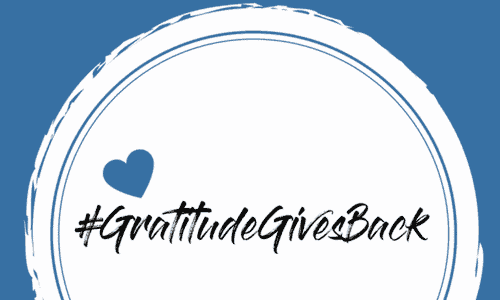“Get Up Earlier” Is The Wrong Message

Being a morning person is often equated with success, especially in school and business. Countless articles tell us to get up earlier for quiet time, but they miss key points about biology and natural preferences of sleeping and waking that we need to understand. Benefits exist for both early birds and night owls, so we should focus on quiet time as a priority, rather than the time of day. Success isn’t determined by when you get up.
The Wrong Message
This was supposed to be about getting up early–why you should and how you can benefit from a change in your schedule. A lot of encouragement and hype to motivate you to rise and shine, even if that’s the last thing you want to do. Research to support a 5am alarm, waking up before everyone else, having a cup of coffee in the quiet morning hours.
After all, that’s what I started doing in January. I’ve been pretty consistent with my schedule since I’ve prioritized getting up around 5 every day (except on the nights when I write this blog). My house is peaceful that early, and since “peace” is my word of the year, it seemed like a good idea to find some every day. Even if the only time to do that is when everyone else is sound asleep, including the dogs.
It has honestly been a game-changer for me: I’m a lot calmer when everyone else wakes up because I’ve had some time to myself, I’m more confident about what I need to do that day because I have a plan, I’m less prone to tension headaches that had been a near daily occurrence for over a year and I’m focused on the right things because I’ve spent time reading and praying.
I was ready to go all-in on this Get Up Early to Improve Your Life message! A 2016 article in the Wall Street Journal declared 4am as the most productive time of the day. Business Insider profiled 21 highly successful early risers. Author and speaker Rachel Hollis inspired hundreds of thousands of women to get up an hour earlier during her #last90days challenge of 2018.
Image from Moms & Beyond
But guess what? That’s not the right message.
The Right Message
Instead of trying to motivate you to get up earlier, I’d like to suggest something else that really does have the potential to change your days, your months, your life.
Carve out 30-60 minutes every day based on your chronotype.
Say what??
Yeah, before I started researching this, I had never seen that word either.
But here’s the deal. When we tell people they need to get up earlier, we discount the biology of sleep patterns and a person’s individual circadian rhythm. The National Sleep Foundation simplifies it like this: “If you’ve ever noticed that you tend to feel energized and drowsy around the same times every day, you have your circadian rhythm to thank. What is it, exactly? Your circadian rhythm is basically a 24-hour internal clock that is running in the background of your brain and cycles between sleepiness and alertness at regular intervals. It’s also known as your sleep/wake cycle.”
Depending on your circadian rhythm, you’re naturally either an early bird or a night owl or somewhere in between. It’s biology. It’s also your chronotype: your tendency toward “morningness or eveningness.” You probably already have a pretty good idea of where you fall, but I always love a good quiz! There’s plenty of research to support the results of this questionnaire, and you get great advice when you’re done. (Love quizzes too? We have one to help you identify and make the most of your secret weapon as a working mom.)
The Automated Morningness-Eveningness Questionnaire: “Our questionnaire gives you advice about your “circadian rhythm type.” There will be 19 questions about your daily sleep-wake habits and the times of day you prefer certain activities. Answering should take only about 5-10 minutes. As soon as you finish, you will receive personalized feedback.”
I scored 70 on the questionnaire which barely put me in the “definite morning” category. A score of 69 would’ve been the “moderate morning” category. Every time I take a quiz or personality assessment, I end up somewhere in the middle of things! Ugh. Based on this result, here’s part of what I learned:
- My melatonin onset probably occurs around 8pm (when I could fall asleep pretty easily)
- My “natural” bedtime is at about 10:30pm
- The best time for me to get up (to avoid oversleeping) is 5:15am
This is pretty consistent with my current schedule, and I can definitely tell a difference when I get enough sleep and wake up between 5 and 5:30.
So of course I’m going to experience a lot of positive benefits by making this a habit! It’s not requiring me to fight against some pretty strong biological preferences. Yes, I have to be intentional and make a commitment to this habit, but based on sleep research, it’s a good idea for me to follow that general schedule anyway.
But for people who have a natural tendency to have more energy at night, getting up early sounds impossible! (Not to mention the complications if you’re a shift worker. Or a new mom. Or a teenager–seriously, the research on later school start times for schools is legit.)
I remember sleepwalking through those first few months with my youngest son.
Early Birds vs. Night Owls
Early birds are set up for greater success in our world because schools and most businesses run on an earlier schedule. Night owls are often viewed as lazy because their most productive hours don’t sync with traditional work times. Harvard Business Review interviewed sleep researcher Christoph Randler who said, “When it comes to business success, morning people hold the important cards. My earlier research showed that they tend to get better grades in school, which get them into better colleges, which then lead to better job opportunities.” Even so, all is not lost for those of you who are late risers!
What Science Says About Early Birds
- More proactive
- More conscientious, agreeable and optimistic
- More analytical
- Better physical and mental health
- Greater success at maintaining a healthy weight
What Science Says About Night Owls
- Better memory and cognitive skills
- Faster thinkers and smarter
- More imaginative, creative and individualistic
- Better sense of humor
- More outgoing
A BBC article made a pretty strong case against trying to change your circadian rhythms by more than an hour: “‘If people are left to their naturally preferred times, they feel much better. They say that they are much more productive. The mental capacity they have is much broader,’ says Oxford University biologist Katharina Wulff, who studies chronobiology and sleep. On the other hand, she says, pushing people too far out of their natural preference can be harmful. When they wake early, for example, night owls are still producing melatonin. ‘Then you disrupt it and push the body to be in the daytime mode. That can have lots of negative physiological consequences,’ Wulff says, ‘like a different sensitivity to insulin and glucose – which can cause weight gain.’”
Well then. Getting up early doesn’t universally change lives like I thought it would, but knowing your body’s circadian rhythms or chronotype and acting accordingly can absolutely make a difference.
Quiet Time: When To Do It And Why It Matters
You need to figure out when you’re at your best. Set aside 30-60 minutes and be intentional about spending that time quietly and wisely. Do it every single day if at all possible. Yes, that will mean sacrifices, but it will always be worth it.
A Harvard Business Review article emphasizes the importance of setting aside time: “The Busier You Are, the More You Need Quiet Time.” Silence restores the nervous system, develops new cells in a region of the brain associated with learning and memory and is stabilizing to cardiovascular and respiratory systems.
Quiet time can help keep us focused and more productive. It helps reduce stress which means improved physical and emotional health. Good mental breaks can also restore motivation, increase creativity and improve learning.
If mornings are best for you, get up before the rest of your family even if you’re tired. If evenings are better, shut down your technology earlier and save the last half hour or hour before bed.
If you spend 30-60 minutes every day doing something on the list below, YOU WILL SEE A NOTICEABLE DIFFERENCE in many areas of your life. We’ve written about all of these, so click on the link to read more.
- EXERCISE: How to ditch your top 6 excuses for not exercising I like working out, yet I still find myself making excuses rather than making exercise a priority. Whatever your excuse — you don’t like to exercise, you don’t have time, you can’t afford it, you never stick with it — this post will challenge you to make your health a priority. Three working moms with serious fitness street cred eliminate the top six excuses for not exercising.
- PRAY OR MEDITATE: 61 easy ways you can relieve stress right now We’re all overwhelmed. We’re juggling too much, and we there’s little margin for error. If we’re not careful, the stress we’re keeping at bay will catch up to us–headaches, sleepless nights, weight gain, a short temper. We know you’re right there with us because you said so. But you also shared how you manage your stress and find some downtime. This tribe that we’re creating is pretty amazing, so we gathered your suggestions, added our own and then found the science to support them. Read on for easy and fun (and sometimes surprising!) ways to relieve stress from other moms who get it.
- READ: 5 ways reading will improve your life Whether you love to read or not, science shows us the many benefits of reading a book: it lowers stress, slows memory decline, improves sleep and increases vocabulary. In this post, we uncovered 5 ways reading will improve your life that aren’t often mentioned, and included a list of book recommendations to help you (and kids of all ages) grow in each area.
- PRIORITIZE YOUR SCHEDULE: The secret to the most successful Type A moms I’m Type A and proud, but I also want to reduce my stress and find healthy ways to keep the beast-like outbursts to a minimum. Here’s the secret: this Type A mom needs to do B- work in certain areas of her life and BE OK WITH THAT. To be clear, it physically hurts me to advocate for mediocrity in any sense, but let me explain. It simply is impossible to be a busy, working mom and to give an A+ effort in every area of life all at the same time. I hate “can’t” statements as much as the next Type A mom, but I believe this is true. Our time and energy are finite. The things and people competing for these resources in any given moment are infinite.
- REFLECT: Unexpected ways reflection can make your 2019 better Reflection requires slowing down, and I much prefer to keep charging forward than hit the brakes and take a look back. The new year knocks and I have plans to make, travel to do, people to see and things to accomplish. But one thing I learned in 2018 is that I need to make it a priority to stop, look back and process, or I really am missing something. Failing to reflect – consciously consider what I did, what happened, and what I can learn from it – will cost me growth not only as a person, but as a teacher, daughter, sister, entrepreneur, friend, wife and mom.
- PRACTICE GRATITUDE: The secret to contentment in a season of selfishness I find it slightly ironic that the season of thanksgiving and gratitude is directly followed by the season of “I want” and “Can I have?” I find it more ironic still that the key to a less selfish holiday season is right in front of us if we’re intentional about taking hold. I’ll tell you what it is, and just in case you aren’t wowed right out of the box, I’ll build a strong defense for why it carries so much more weight than you realize. Then I’ll dig into four ways you can put it into action. Ready? Ok, here it is: Teach gratitude. I’ll admit it sounds a little “been there, done that” and over-simplified, but we scoured the research and the results were clear: nearly every aspect of a person’s life improves when he or she is more grateful.
- PLAN MEALS: 9 powerful reasons to make time for family meals My kids are in elementary school, so I’m between the trials of the toddler years and trauma of the teens. But sports practices and school and work commitments make our evenings ever-changing, and there’s plenty of whining about the meals I choose, so I’m not sure there’s a phase in raising kids where mealtimes are a breeze. But they’re worth it. Eating as a family makes a powerful impact on kids in ways you probably never considered. The list below shows nine compelling reasons that were enough to convince me to make this a bigger priority for my family.
- For tips that work: The best meal-planning hacks (and recipes) for busy moms
Even just a quick overview makes a pretty compelling argument for prioritizing quiet time: improved mental and physical health, increased optimism and positive mindset, more empathy and happiness, increased productivity and stronger relationships. With all that at stake, my quiet time is non-negotiable.











